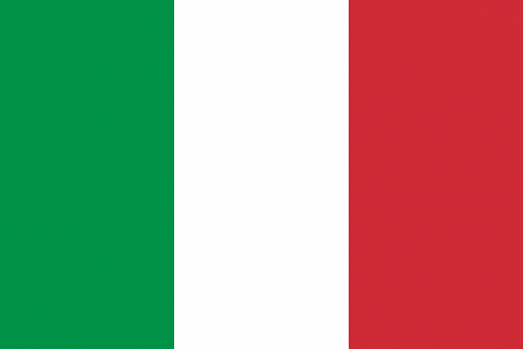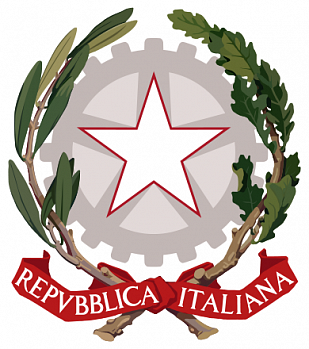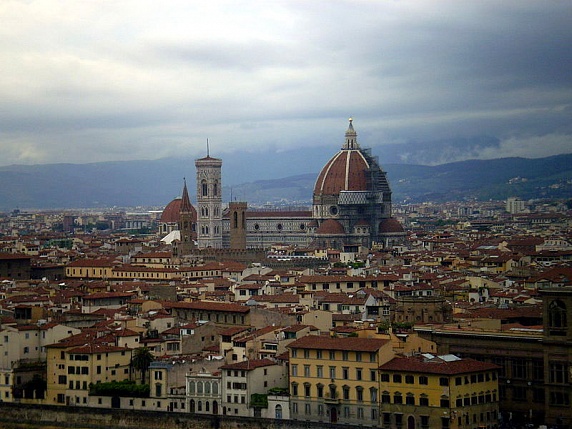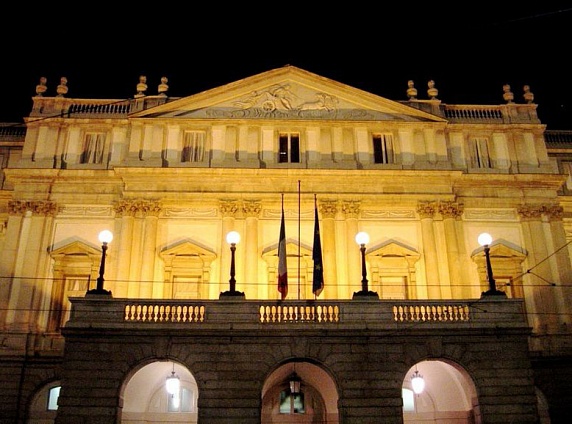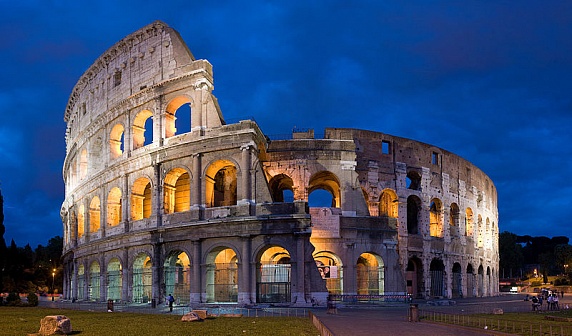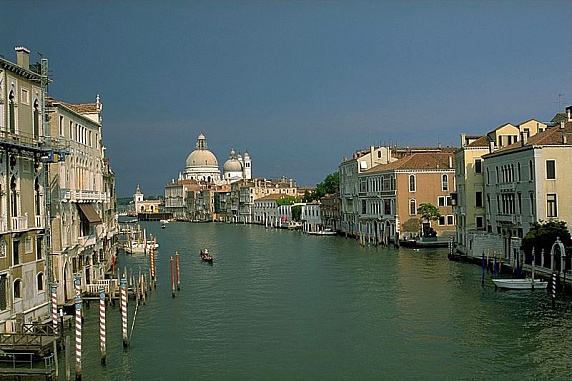 La République Italienne
La République Italienne
Acting Foreign Minister Sergey Lavrov’s interview with the journal Russian Business Guide – Italian-Russian Chamber of Commerce, published May 18, 2018
Question: What is of primary importance for international affairs, politics or the economy? Whose business interests are behind the current accusations against Russia? Do the increasing political tensions between Russia and the EU correspond to the growth of economic ties between Russia and its European partners?
Sergey Lavrov: Regrettably, we are witnessing the politicisation of economic cooperation, including the increasing use of unfair competition such as disregard for the universal rules of international trade and WTO standards, unilateral restrictions and the exterritorial use of national legislation. The goal of these actions, which are seriously damaging the global economy, is to further national commercial interests at all costs. In particular, this is the goal of the US Countering America’s Adversaries Through Sanctions Act.
It is a fact that the United States is the main driver of the economic sanctions against Russia, while European business has to foot the bill. EU companies in Russia are being replaced by producers from other regions, whereas the United States remains unaffected. Washington makes no secret of the fact that its fight against the alleged Russian threat is designed to strengthen the positions of US companies, in particular the energy and defence sectors, in Europe. It is for the Europeans to decide if this is in the EU interests. We know that the European business community is becoming increasingly dissatisfied with this.
On the other hand, trade and economic cooperation between Russia and the EU has resumed growth despite the complicated situation in Europe. Russian-EU trade increased by over 20 per cent in 2017, but it will take much time and effort to bring it back to the pre-crisis level.
Question: Can the struggle between the globalist and pro-sovereignty forces, which is increasing in many European countries, influence their relations with Russia?
Sergey Lavrov: The European Union is an important neighbour and trade and economic partner. Of course, we are monitoring discussions on the future of European integration waged in the EU and its member countries. At the same time, we have never interfered and will not interfere in other countries’ internal affairs. Unlike some of our partners, we have never advocated our preferences regarding the outcome of referendums and elections that could influence the future of the EU. We work and are ready to interact with anyone the Europeans elect.
We believe that peace and constructive development are in the interests of both Russia and the EU. In this context, we would like the EU to be a strong, consolidated and responsible international player capable of pursuing an independent foreign policy in the interests of European nations.
We hope that the EU will overcome its mental inertia and find the strength to abandon the policy of the lowest common denominator with regard to Russia and stop pandering to a small but very aggressive group of anti-Russia countries. This would not only make Russia-EU relations more predictable but would also strengthen trust and mutual understanding on our common continent.
Question: Italian Foreign Minister Angelino Alfano said after a meeting with you that Russia had always been a reliable partner and gas supplier and that his country intended to promote trade and economic cooperation with Russia. Is there any evidence in Russian-Italian ties to show that Italy is steering away from the sanctions policy of Washington and Brussels?
Sergey Lavrov: Russia has always paid considerable attention to ties with Italy. We have considerable experience of constructive bilateral cooperation.
Regrettably, our relations are being influenced by the complicated situation in Europe and the world. Italy’s policy towards Russia is influenced by European and trans-Atlantic solidarity. The policy of sanctions waged by Washington and Brussels has had a negative effect on Russian-Italian interaction. Our trade has plunged by 60 per cent between 2014 and 2016. As far as I know, the Italian farmers’ association Coldiretti has assessed the damage sustained by the national companies over the past three years at 7 billion euros. In light of this, we feel cautious optimism about the reports regarding a 20.8 per cent increase in bilateral trade in 2017.
During my talks with Minister of Foreign Affairs and International Cooperation Angelino Alfano, we spoke about the development and diversification of trade and investment cooperation and pointed out the need to maintain business interaction even in the current situation. The work of the Russian-Italian Council on Economic, Industrial, Currency and Financial Cooperation is of great importance in this respect. Its co-chair Angelino Alfano maintains close contacts with his Russian counterpart, Acting Deputy Prime Minister Arkady Dvorkovich. I would like to say that the council’s responsibilities concern all the main issues on the bilateral economic agenda.
The recent increases in pressure on Russia have put our relations to a new test. However, we are convinced that the objective interest of our business communities in strengthening practical cooperation will prevent this global turbulence from affecting the prospects for Russian-Italian cooperation.
Question: In what ways is cooperation between Russia and Italy different from our ties with other EU member-countries? What are the most dynamic sectors, and where is it possible to boost our potential?
Sergey Lavrov: In the current situation, Russian and Italian business communities are searching for effective new forms of cooperation. The Russian Government and business leaders have supported a timely initiative to expand industrial cooperation with a focus on the localisation of Italian production facilities in Russia under the “Made with Italy” formula.
Major Italian companies are working successfully on the Russian market. For example, Pirelli has already invested over 200 million euros in expanding their tyre plants in the Voronezh and Kirov regions. In late 2017, Cremonini Group launched a new production line at a company making convenience meat products in the Moscow Region. This year, a leading confectionery market participant, Ferrero, will mark the 10th anniversary of laying the cornerstone of its factory in the Vladimir Region. By working vigorously, Italian businesses confirm their interest in preserving and expanding their presence in Russia.
I would like to focus on the oil and gas and petrochemical industry. Successful examples include the involvement of Maire Tecnimont Group in building the Amur gas refinery and an ammonia plant in Kingisepp in the Leningrad Region. Italian companies are actively involved in implementing infrastructure projects in Russia. Astaldi Group is building sections of the high-speed Moscow-St Petersburg motorway. Codest is completing the reconstruction of Moscow’s Dynamo Stadium and the adjacent territory.
I should also mention new Italian investment projects. For example, Italian businesses have invested about $30 million in Russian car-sharing companies Delimobil and Easy Ride. Another interesting initiative is the opening of the Eataly gourmet centre in Moscow in 2017, which offers a wide range of Italian foods and dishes.
In turn, Russian businesses operate successfully in key sectors of the Italian economy, including the energy industry, metals and the communications sector, despite the far from favourable market situation. The biggest Russian investors include LUKoil, which owns the ISAB oil refinery in Sicily, Renova, which is building and operating solar panels, and RUSAL, which has invested in alumina refinery EurAllumina in Sardinia.
Question: Italy always has a broad representation in the St Petersburg International Economic Forum. What do you expect from the 2018 forum, and which foreign delegations are expected to provide the most constructive and result-oriented contacts?
Sergey Lavrov: In its 20-year-plus history, SPIEF has asserted itself as an important international venue and an authoritative dialogue format for establishing useful business contacts, openly exchanging opinions on topical global economic issues and reaching practical bilateral agreements.
The forum has two traditional tracks: global and Russian. Its agenda includes quite an impressive range of topics, with participants discussing not only economic, but also technological, social and cultural issues. This makes it possible to say that the St Petersburg International Economic Forum has turned into a full-fledged Russian Davos.
The forum remains highly popular, despite the complicated situation on the international scene. This is hardly surprising because the business community has had enough of confrontation and sanctions. We are satisfied to note that the forum attracts more and more Russian and foreign participants, including heads of state and government, as well as heads of international organisations. More contracts are being signed at the forum, and more different events are being held within its framework.
I am confident that the current forum will be no exception. This time, numerous high-ranking foreign guests are planning to visit St Petersburg. We hope that their involvement will contribute to a detailed discussion of key modern issues and promote practical cooperation. We are expecting tangible results from the work of roundtable business discussions during SPIEF 2018 whose participants will focus on expanding Russia’s economic cooperation with Africa, India, the United States, Finland, France, Japan and, of course, Italy.
